Biblical Jonah Visits Nineveh – The Evil City
David Tee - AncientPages.com - Nineveh, the mere mention of the word may bring thoughts of evil fear to those who read about that great city. Except for one brief period where Nineveh repented in the time of Jonah, it did not serve God but served their desires.
The Ancient City Nineveh
Nineveh means 'gift of God,' but it is hard to see that meaning in the citizens' behavior and deeds throughout its history.
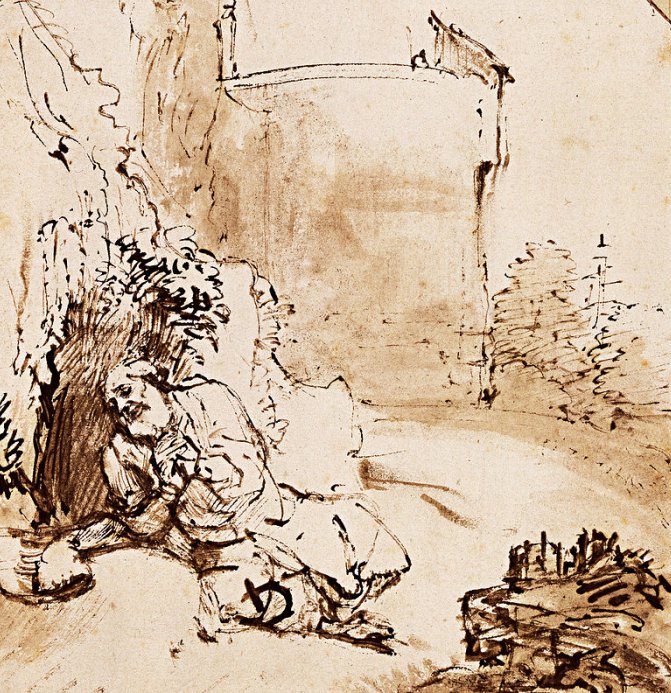
The Prophet Jonah before the Walls of Nineveh, c. 1655; Rembrandt (1606–1669) - TQHqiO_H-vrGbA at Google Cultural Institute - Public Domain
The people of Nineveh and Assyria were feared for their ruthlessness and cruel attitude.
They were also known for being the center of two trade routes. Most of Nineveh's wealth came from the trade centers located in the city. From its humble beginning in prehistory to its demise in 612 BC, the town was located on the Tigris River, just next to the modern city of Mosul.
The city's earlier Akkadian Kings, Manishtushu and Shamshi-Adad I, rebuilt earlier temples dedicated to the God of Nineveh, Ishtar. She was the goddess of war and love. It gives you the idea of why the Ninevites adopted warlike practices. The most famous king of Nineveh, Sennacherib, built himself a 70-room palace rivaling none.
Ashurbanipal, a lesser-known successor to Sennacherib, created a 22,000-volume library discovered in the 20th century. But even this good act did not stop Nineveh's final destruction 15 years later.
Nineveh's Fame
Nineveh's fame is owed to three factors:
- It was a city of war, and its warlike reputation was well earned through its numerous conquests and cruel treatment of those conquered.
 Jonah Preaching to the Ninevites (1866) by Gustave Doré. Public Domain
Jonah Preaching to the Ninevites (1866) by Gustave Doré. Public Domain- The town was built on the north/south and east/west trade routes. Traveling traders would quickly spread their fame and wealth throughout the regions.
- It was famous for its vast library and two temples dedicated to Ishtar.
What Archaeology Says
So far, archaeology has uncovered about 1700 acres of this once-great city and has shown that the city's circumference was about 7.7 miles long. This discovery puts it at odds with the biblical description found in the book of Jonah.
The Bible says that Jonah walked for three days to get to the city's center. So far, archaeology has disagreed with that assessment. Yet, there is a reason for this discrepancy. In the first chapter of his book, The Bible in Its World, K.A. Kitchen, a famous Egyptologist, wrote of a significant enemy archaeology cannot defeat.
Mr. Kitchen pointed out that erosion is one of the main enemies of archaeology and archaeologists. Erosion destroys more ancient sites much faster than almost any other natural disaster.
He also pointed out in the same chapter that archaeologists are lucky if they excavate between 2 and 5% of any site. It means that up to 98% of the size of Nineveh is lost to time, erosion, war, and destruction.
Jonah and Nineveh
The city was nicknamed an evil city probably because, as archaeologist Gordon Franz says in his article Nahum, Nineveh, and Those Nasty Assyrians, they plundered the wealth and the people of the cities they conquered. They often dragged people off with hooks through their noses.
Nineveh - Mashki Gate - Image credit: Omar Siddeeq Yousif - CC BY-SA 4.0
Throughout its over 3,000-year history, Nineveh was not known to be kind and gentle except during the Jonah era. Jonah was a prophet of God, and in his book and the first chapter, we read that the command of God came to Jonah to preach to the city of Nineveh. Besides his book and those opening lines, we only know a little about the man. It is his only appearance in the Bible except for a few references in the New Testament. But those references do not provide more details about his life or family.
The story of Jonah is well known. He did not like the idea of preaching to such an evil city. His reason was mentioned in the last chapter. Jonah knew that God was merciful, gracious, and compassionate and would spare the city of its coming judgment if they repented.
Jonah eventually was convinced to go, and he went and preached to the people of Nineveh. His preaching was a success and probably more significant than the two Great Awakenings in American history. Everyone, from the king down to the lowest member of Nineveh society, repented and turned away from their evil ways.
Jonah did not celebrate when the revival occurred like most modern preachers do today. He fell into a great depression, and we can only speculate that he was like many of Nineveh's enemies. He wanted to see Nineveh pay for their crimes, not be redeemed from them.
From Jonah's 4th chapter, we get the minimum number of people who live in the city. Jonah 4:11 tells us that over 120,000 people lived within the walls of Nineveh. An exact population count cannot be done due to the loss of civic records and most buildings that populated the city.
The Change Of Heart Did Not Last
It is the sad part of the story of Nineveh. It was only a short time after the revival and Jonah's preaching that the people of the great city turned back to their evil ways. It prompted God to send another prophet, warning them of a coming judgment. This time, the warning was unsuccessful. The city was destroyed by the Babylonians and Medes in 612 BC.
Some Final Words
Nineveh's remarkable story ended in the 7th century B.C. after over 3,000 years of existence. It was one of the oldest cities in antiquity. The Bible tells us that Nimrod was the city's founder, and was when God divided the world's languages and separated the people scattering them across the earth.
Written by – David Tee AncientPages.com Staff Writer
Updated on October 1, 2023
Copyright © AncientPages.com All rights reserved. This material may not be published, broadcast, rewritten or redistributed in whole or part without the express written permission of AncientPages.com
Expand for referencesMore From Ancient Pages
-
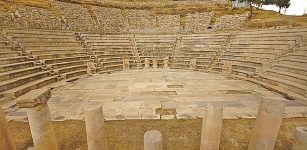 Cult Of Zeus Discovered In The Ancient City Of Metropolis
Archaeology | Dec 21, 2015
Cult Of Zeus Discovered In The Ancient City Of Metropolis
Archaeology | Dec 21, 2015 -
 On This Day In History: Ceiling Of The Sistine Chapel, Painted By Michelangelo, Is Shown Publicly For The First Time – On Nov 1, 1512
News | Nov 1, 2016
On This Day In History: Ceiling Of The Sistine Chapel, Painted By Michelangelo, Is Shown Publicly For The First Time – On Nov 1, 1512
News | Nov 1, 2016 -
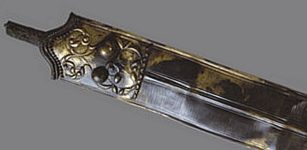 Does Celtic Art Have Links With Iron Age Art Of The Eurasian Steppes?
Archaeology | Oct 15, 2015
Does Celtic Art Have Links With Iron Age Art Of The Eurasian Steppes?
Archaeology | Oct 15, 2015 -
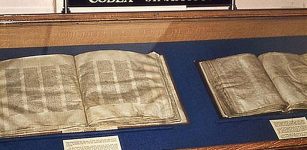 World’s oldest bible -The Codex Sinaiticus – to be displayed at the British Museum
News | Sep 1, 2015
World’s oldest bible -The Codex Sinaiticus – to be displayed at the British Museum
News | Sep 1, 2015 -
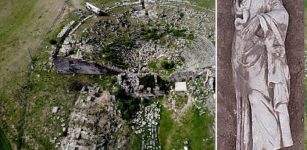 Statue Of Greek Health Goddess Hygieia – Unearthed
Archaeology | Aug 24, 2021
Statue Of Greek Health Goddess Hygieia – Unearthed
Archaeology | Aug 24, 2021 -
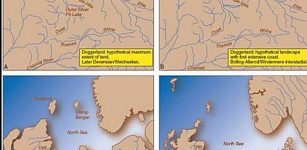 Unlocking The Secrets Of Lost Prehistoric Land Hidden Beneath The Sea
News | Sep 8, 2015
Unlocking The Secrets Of Lost Prehistoric Land Hidden Beneath The Sea
News | Sep 8, 2015 -
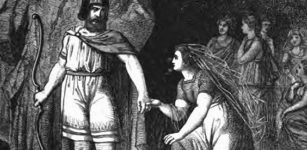 Freya And Her Lovely Husband Odr, God Of Summer Sun And Passion In Norse Mythology
Featured Stories | Dec 3, 2018
Freya And Her Lovely Husband Odr, God Of Summer Sun And Passion In Norse Mythology
Featured Stories | Dec 3, 2018 -
 On This Day In History: Universal Declaration Of Human Rights Adopted – On Dec 10, 1948
News | Dec 9, 2016
On This Day In History: Universal Declaration Of Human Rights Adopted – On Dec 10, 1948
News | Dec 9, 2016 -
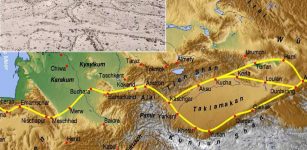 Satellite Images Revealed Lost Ancient Irrigation System In Desert-Like Region Of China
Ancient Technology | Jan 6, 2018
Satellite Images Revealed Lost Ancient Irrigation System In Desert-Like Region Of China
Ancient Technology | Jan 6, 2018 -
 Neolithic Monuments, Prehistoric Pits And Anglo-Saxon Cemetery Unearthed In England
Archaeology | Apr 19, 2016
Neolithic Monuments, Prehistoric Pits And Anglo-Saxon Cemetery Unearthed In England
Archaeology | Apr 19, 2016 -
 Evidence Of Millennia-Old Textile Manufacture And Rare Ancient Eagle-Bone Pin Discovered In Oxfordshire
Archaeology | Jun 13, 2023
Evidence Of Millennia-Old Textile Manufacture And Rare Ancient Eagle-Bone Pin Discovered In Oxfordshire
Archaeology | Jun 13, 2023 -
 Why Did Neanderthals Visit A Special Cave In Jersey For Over 100,000 Years?
Archaeology | Dec 13, 2016
Why Did Neanderthals Visit A Special Cave In Jersey For Over 100,000 Years?
Archaeology | Dec 13, 2016 -
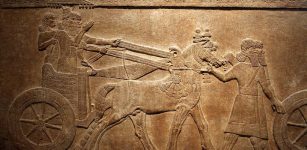 Pax Assyriaca: Important Time For The Neo Assyrian Empire And Surrounding Regions
Ancient History Facts | Aug 11, 2016
Pax Assyriaca: Important Time For The Neo Assyrian Empire And Surrounding Regions
Ancient History Facts | Aug 11, 2016 -
 Incredible Ancient Star Map Depicting Our Galaxy Is Hidden In Africa
Featured Stories | Aug 4, 2018
Incredible Ancient Star Map Depicting Our Galaxy Is Hidden In Africa
Featured Stories | Aug 4, 2018 -
 Drinking Milk Increased Ancient Human Body Size – New Study
Archaeology | Jan 18, 2023
Drinking Milk Increased Ancient Human Body Size – New Study
Archaeology | Jan 18, 2023 -
 Vodyanoi: Evil Water Spirit In Ancient Beliefs Of The Slavs
Featured Stories | May 23, 2019
Vodyanoi: Evil Water Spirit In Ancient Beliefs Of The Slavs
Featured Stories | May 23, 2019 -
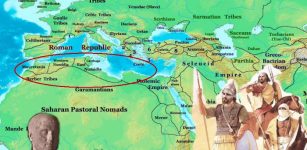 On This Day In History: Emperor Gordian II Loses The Battle Of Carthage – On Apr 12, 238 AD
News | Apr 12, 2016
On This Day In History: Emperor Gordian II Loses The Battle Of Carthage – On Apr 12, 238 AD
News | Apr 12, 2016 -
 Child’s Play: Are Tibetan Hand And Foot Traces The Earliest Example Of Parietal Art?
Archaeology | Sep 18, 2021
Child’s Play: Are Tibetan Hand And Foot Traces The Earliest Example Of Parietal Art?
Archaeology | Sep 18, 2021 -
 Ancient Greeks In Ukraine: 2000-Year-Old Settlement With Previously Unknown Structures – Localized By Polish Archaeologists
Archaeology | Nov 15, 2015
Ancient Greeks In Ukraine: 2000-Year-Old Settlement With Previously Unknown Structures – Localized By Polish Archaeologists
Archaeology | Nov 15, 2015 -
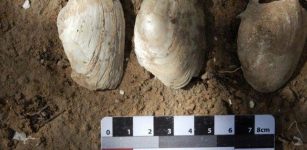 Aboriginals Inhabited South Australia 29,000 Years Ago – New Study
Archaeology | Jul 15, 2020
Aboriginals Inhabited South Australia 29,000 Years Ago – New Study
Archaeology | Jul 15, 2020

